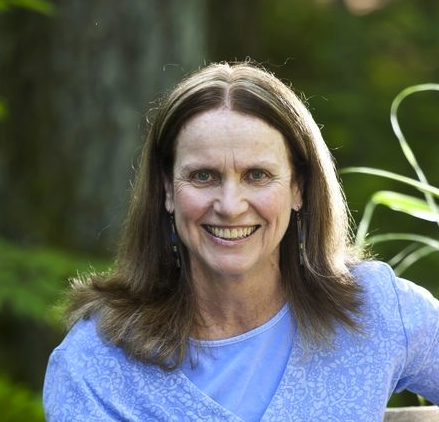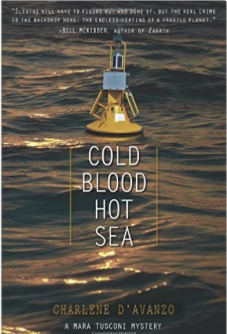Introducing a new environmental mystery
(Maine Crime Writers love to introduce our readers to new authors–mostly Maine authors–and books we think our readers will enjoy. Today’s guest is Charlene D’Avanzo, talking about her new eco-mystery)
 Charlene D’Avanzo: Last month I traveled to one of the most biologically diverse places in the world—Costa Rica. There were sloths, howling monkeys, alligator-like reptiles called caimans, birds galore. My buddies were super excited about an extra long, extra high zip line through the tropical forest, but I was not.
Charlene D’Avanzo: Last month I traveled to one of the most biologically diverse places in the world—Costa Rica. There were sloths, howling monkeys, alligator-like reptiles called caimans, birds galore. My buddies were super excited about an extra long, extra high zip line through the tropical forest, but I was not.
That’s because I’m terribly afraid of heights.
Despite my anxiety, I took a deep breath, clipped myself to a half dozen lines, and sped through the forest two hundred feet above terra firm. My journey to becoming a fiction writer has been kind of like that.
I call my books environmental mysteries because each has an environmental underpinning, and I think of the natural world (e.g., Maine’s coast) as a character in itself. Five years ago, another researcher’s horrific experience with climate change deniers triggered my decision to transform myself into a mystery writer. It seemed to me that scientists had failed to engage the public in this global emergency. Perhaps readers would be open to this message in a compelling story with engaging characters who happened to be scientists.
Like the zipline, it’s been an amazing ride—sometimes so scary and frustrating I screamed like a banshee, but always absorbing. I’ve held on and the first in my “Maine Oceanography” series will be published by a conservation press in June.
 COLD BLOOD, HOT SEA is an amateur sleuth. Oceanographer Mara Tusconi tries to figure out who offed a dear colleague on a research cruise and why. The quest entangles Mara in a scheme headed up by powerful energy executives with much to lose by what Mara and other scientists at the Maine Oceanographic Institute are finding out. Mara and her sidekick and fellow scientist Harvey (Harville), face numerous trials, of course, including a sea kayak-motorboat chase in Maine’s icy waters at night. Mara’s flaws include one fatal for an oceanographer— she gets seasick.
COLD BLOOD, HOT SEA is an amateur sleuth. Oceanographer Mara Tusconi tries to figure out who offed a dear colleague on a research cruise and why. The quest entangles Mara in a scheme headed up by powerful energy executives with much to lose by what Mara and other scientists at the Maine Oceanographic Institute are finding out. Mara and her sidekick and fellow scientist Harvey (Harville), face numerous trials, of course, including a sea kayak-motorboat chase in Maine’s icy waters at night. Mara’s flaws include one fatal for an oceanographer— she gets seasick.
In adddition, the book is a cli-lit, eco-lit novel. Climate fiction is hot these days, but most novels are dystopian stories set in a devastated future. In contrast, COLD BLOOD, HOT SEA is contemporary, environmentally accurate with a positive message, and funny.
Charlene D’Avanzo is a marine ecologist, emeritus professor at Hampshire College, and award winning environmental educator. In 2015 she was awarded Mystery Writers of America’s McCloy scholarship for new writers. Her short stories are published in several anthologies including the eco-fiction collection “Winds of Change”. She’s a moderator on the Ecology in Literature and Arts site. Charlene lives on Little John Island in Yarmouth, Maine.
charlenedavanzo.com
author@charlenedavanzo.com



